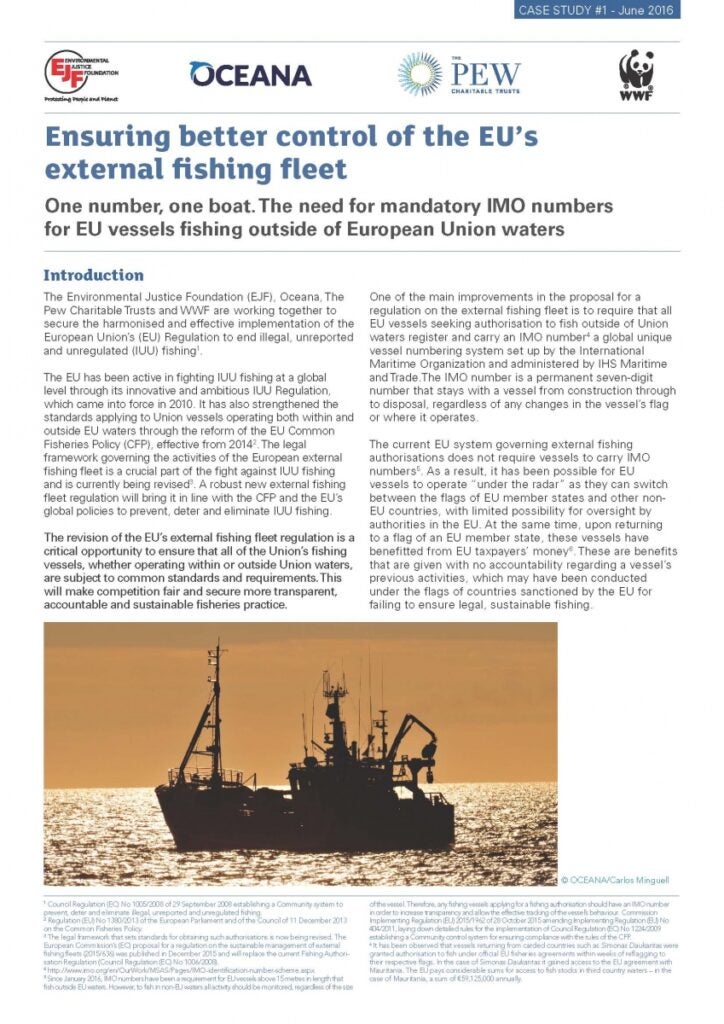Report | July 12, 2016
Ensuring better control of the EU’s external fishing fleet
The Environmental Justice Foundation (EJF), Oceana, The Pew Charitable Trusts and WWF are working together to secure the harmonised and effective implementation of the European Union’s (EU) Regulation to end illegal, unreported and unregulated (IUU) fishing.
The EU has been active in fighting IUU fishing at a global level through its innovative and ambitious IUU Regulation, which came into force in 2010. It has also strengthened the standards applying to Union vessels operating both within and outside EU waters through the reform of the EU Common Fisheries Policy (CFP), effective from 2014. The legal framework governing the activities of the European external fishing fleet is a crucial part of the fight against IUU fishing and is currently being revised3. A robust new external fishing fleet regulation will bring it in line with the CFP and the EU’s global policies to prevent, deter and eliminate IUU fishing.
The revision of the EU’s external fishing fleet regulation is a critical opportunity to ensure that all of the Union’s fishing vessels, whether operating within or outside Union waters, are subject to common standards and requirements. This will make competition fair and secure more transparent, accountable and sustainable fisheries practice.
One of the main improvements in the proposal for a regulation on the external fishing fleet is to require that all EU vessels seeking authorisation to fish outside of Union waters register and carry an IMO number a global unique vessel numbering system set up by the International Maritime Organization and administered by IHS Maritime and Trade.The IMO number is a permanent seven-digit number that stays with a vessel from construction through to disposal, regardless of any changes in the vessel’s flag or where it operates.
The current EU system governing external fishing authorisations does not require vessels to carry IMO numbers. As a result, it has been possible for EU vessels to operate “under the radar” as they can switch between the flags of EU member states and other non- EU countries, with limited possibility for oversight by authorities in the EU. At the same time, upon returning to a flag of an EU member state, these vessels have benefitted from EU taxpayers’ money6. These are benefits that are given with no accountability regarding a vessel’s previous activities, which may have been conducted under the flags of countries sanctioned by the EU for failing to ensure legal, sustainable fishing.



